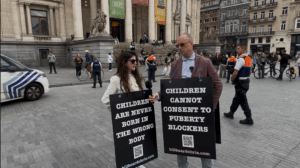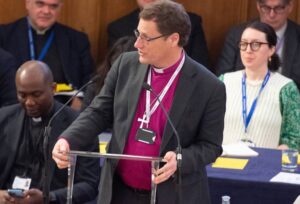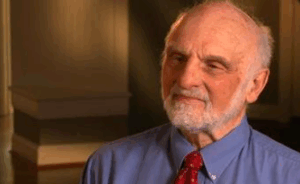A New Perspective on Purim and Jewish-Christian Dialogue

Hebrew scholar and Jewish academic Irene Lancaster offers insights into Purim and the ongoing dialogue between Jewish and Christian communities.
As the festive celebration of Purim commences this evening in Israel, extending through Monday, it brings with it a reflection on the enduring presence of G-d, illustrated through the narrative of the Book of Esther. Despite the absence of G-d’s name, His influence is felt through human actions.
During Purim, the mention of the villain Haman prompts the shaking of greggers, creating a cacophony. The festivities include costumes, street carnivals, music, and diverse weather conditions ranging from sun to snow.
This celebration occurs a month before Pesach and coincides with several significant commemorations, including the 80th anniversary of World War Two’s conclusion and International Women’s Day.
Among these commemorations is the annual Rabbi Jonathan Sacks Memorial Lecture, held on Tuesday in London, featuring Lord Rowan Williams, former Archbishop of Canterbury, as this year’s speaker. He also serves as the co-chair of the Anglican Jewish Conversation Group.
March has been marked by notable religious observances, such as Shabbat, Rosh Hodesh Adar, and Parshat Shekalim. On March 8, Parshat Amalek was read, recalling the biblical foe Haman’s ancestor, as described in Deuteronomy 25: 17-19.
This day also marks the birthday of Jonathan Sacks, prompting reflection on Lord Rowan Williams’ upcoming talk.
In a 2006 encounter, Irene Lancaster recounted a meal with Chief Rabbi Shear Yashuv Cohen, who discussed the possibility of engaging in dialogue with the Church of England, a request from Rowan Williams.
Despite initial reservations, Rabbi Cohen pursued the dialogue, underscoring the importance of learning from Judaism and working collaboratively.
In 2008, Jonathan Sacks addressed the Lambeth Conference at Rowan Williams’ invitation, and later that year, Rabbi Shear Yashuv spoke at the Vatican, invited by Pope Benedict.
Rabbi Sacks’ Lambeth address emphasized the concept of ‘covenant’ as distinct from ‘contract.’ While contracts can be broken, covenants represent enduring commitments, where mutual giving transforms relationships.
These ideas are central to the enduring nature of the Jewish covenant with G-d, encompassing people, Torah, and land, and they reflect the commitment to preserving this covenant through dedication to Torah and land.
Reflecting on past experiences, Irene Lancaster mentioned her encounter with Rabbi Dr. Nathan Lopez Cardozo, who introduced her to Jewish thought.
During Tuesday’s lecture, Rowan Williams highlighted Rabbi Cardozo’s interpretation of Noah’s passive obedience contrasted with Abraham’s active engagement with G-d, as seen in Genesis 18.
Williams suggested that Judaism and Christianity offer interconnected perspectives that can enhance understanding, echoing sentiments from a letter by John Sentamu, former Archbishop of York, who emphasized the need for collaboration to address antisemitism.
Addressing the distinctiveness of Jewish identity, Williams recounted a 2008 trip to Auschwitz with faith leaders and students, which revealed challenges in connecting the Shoah with living Jewish perspectives.
Reflecting on this experience, Williams remarked, “The mass slaughter of Jews is historically something different from genocide in a general sense.”
He underscored the need to recognize Jewish contributions and the unique character of Jewish witness, cautioning against reducing Jewish identity to mere victimhood.
Rowan Williams addressed the ongoing debate over a planned Holocaust memorial in Victoria Tower Gardens, emphasizing the need for clarity in its purpose.
During the same time, women in the Lords outlined concerns about the memorial’s location and safety, with Baroness Eleanor Laing advocating for a fitting tribute to Jewish life.
The Jewish community continues to grapple with trauma, as shared in a recent meeting discussing the impact of violence on families. The speakers emphasized the themes of chaos, community, choice, creativity, commemoration, consecration, and celebration.
Gratitude was expressed for those who support Jewish-Christian collaboration and work towards understanding and fulfilling G-d’s will.
As Rabbi Tarfon in Pirke Avot stated, “You may not be able to finish the job, but you have to give it a go.” Rowan Williams echoed this sentiment, expressing solidarity with the Jewish community, saying, “Count me in.”
This article was originally written by www.christiantoday.com






